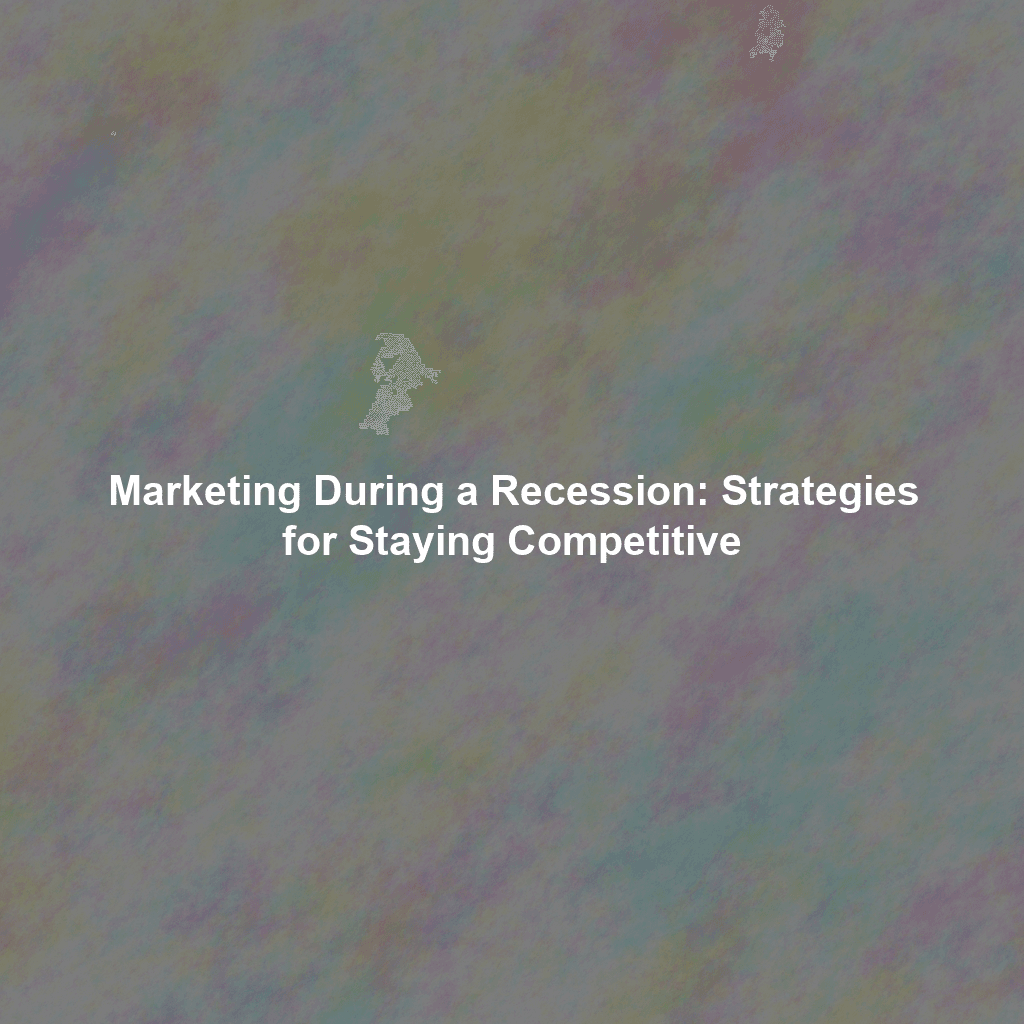Navigating a recession can feel like trying to sail a boat through a hurricane. The economic headwinds are fierce, consumer spending tightens, and businesses often scramble to cut costs, sometimes at the expense of their marketing efforts. However, history shows that companies that maintain or even increase their marketing spend during a recession are often the ones that emerge stronger and more competitive on the other side. This article explores proven marketing strategies to not just survive, but thrive, during an economic downturn.
Understanding the Recessionary Landscape
Before diving into specific tactics, it’s crucial to understand the fundamental shifts in consumer behavior and market dynamics that occur during a recession. People become more price-sensitive, prioritize essential purchases, and carefully evaluate every expenditure. Brand loyalty can waver as consumers seek better deals and value. Companies need to adjust their messaging and offerings to reflect this new reality.
Consumer Psychology During a Downturn
Fear and uncertainty are powerful drivers of consumer behavior during a recession. Marketing campaigns that acknowledge these anxieties while offering solutions – such as affordable options, long-term value, or guarantees – can be highly effective. Empathy is key; avoid tone-deaf messaging that ignores the economic realities people are facing.
Market Dynamics: Opportunities Amidst the Challenges
While a recession presents challenges, it also creates opportunities. Competitors may pull back on marketing, leaving a void that you can fill. Acquiring new customers can be cheaper during a recession due to reduced advertising costs and increased consumer openness to switching brands for better value. Innovation and adaptation become paramount, paving the way for long-term growth.
Proven Marketing Strategies for Recessionary Times
Now, let’s explore specific marketing strategies that can help your business weather the storm and emerge stronger.
Emphasize Value and Affordability
This is perhaps the most critical strategy. Consumers are actively seeking the best value for their money. Highlight the affordability of your products or services, and emphasize the long-term benefits they provide. Consider offering discounts, promotions, or bundled deals to attract price-conscious customers. Don’t just cut prices arbitrarily; focus on demonstrating the value received for the price paid.
Focus on Customer Retention
Acquiring new customers is always more expensive than retaining existing ones. During a recession, this difference becomes even more pronounced. Invest in customer loyalty programs, personalized communication, and exceptional customer service to keep your existing customers happy and engaged. Nurture relationships and turn customers into advocates.
Digital Marketing: Efficiency and Reach
Digital marketing offers a cost-effective way to reach a large audience. Focus on strategies like SEO (Search Engine Optimization), content marketing, social media marketing, and email marketing. These methods allow you to target specific demographics, track results, and adjust your campaigns in real-time to maximize ROI. Pay-per-click (PPC) advertising can also be effective, but closely monitor campaign performance and budget.
Content Marketing: Building Trust and Authority
Create valuable and informative content that addresses your target audience’s needs and concerns. This could include blog posts, articles, videos, infographics, or webinars. By providing useful content, you can build trust, establish yourself as an authority in your industry, and attract organic traffic to your website. Focus on topics relevant to the recession, such as saving money, increasing efficiency, or finding alternative solutions.
Targeted Advertising: Precision and ROI
Instead of broad, untargeted advertising, focus on reaching specific customer segments with tailored messages. Utilize demographic, psychographic, and behavioral data to identify your ideal customers and create campaigns that resonate with their specific needs and preferences. This approach maximizes your advertising ROI and reduces wasted spending.
Leverage Social Media: Engage and Connect
Social media provides a platform for direct engagement with your customers. Use social media to share valuable content, answer questions, run contests, and build a community around your brand. Listen to what your customers are saying and respond to their feedback. Authenticity and transparency are crucial for building trust on social media.
Revisit Your Marketing Budget: Prioritize and Optimize
A recession is a good time to re-evaluate your marketing budget and identify areas where you can cut costs or improve efficiency. Eliminate underperforming campaigns and reallocate resources to strategies that are delivering the best results. Focus on data-driven decision-making and continuously monitor your marketing performance.
Don’t Stop Innovating: Adapt and Evolve
Standing still is a recipe for disaster during a recession. Continuously look for ways to innovate your products, services, and marketing strategies. Adapt to changing consumer needs and market conditions. Embrace new technologies and explore new opportunities. Companies that innovate during a recession are often the ones that emerge as market leaders.
Case Studies: Companies That Thrived During Recessions
History is filled with examples of companies that successfully navigated recessions through smart marketing. For example, during the 2008 financial crisis, Domino’s Pizza invested heavily in new product development and marketing, leading to significant market share gains. Similarly, companies like Hyundai offered extended warranties and innovative financing options to appeal to price-sensitive consumers. These examples demonstrate the power of proactive and strategic marketing in recessionary times.
Conclusion: Weathering the Storm and Emerging Stronger
Marketing during a recession requires a strategic and adaptable approach. By focusing on value, customer retention, digital marketing, and innovation, businesses can not only survive the downturn but also position themselves for long-term growth and success. Remember that marketing is an investment, not an expense. By continuing to invest in your brand and your customers, you can weather the storm and emerge stronger on the other side. The key is to understand the changing needs of your customers and adapt your strategies accordingly. Don’t be afraid to experiment, iterate, and refine your approach until you find what works best for your business.
 Skip to content
Skip to content

